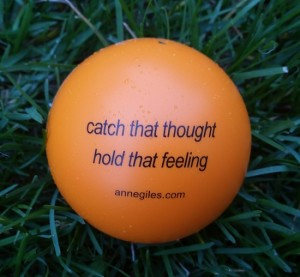The Awareness Skills curriculum is a facilitator-led or self-guided program to assist people who want to reduce or eliminate behaviors that have become problematic for them. The curriculum was developed originally to assist people with symptoms of substance use disorders. The curriculum is to be used in tandem with medical care. Medical care is the first line of treatment for substance use disorders and mental disorders and may be sufficient. Self-help is not an evidence-based treatment for substance use disorder.
In a facilitator-led program, concepts are defined and materials are displayed and explained during the sessions. Contingency management awards are provided.
In order to increase the chances of being an early responder and achieving remission efficiently, participants are encouraged to spend an hour each day studying remission-focused materials, including completing homework assignments.
You are invited to create an individualized supplement to Help That Helps. Here are the related materials:
Session Outlines
Session 1: Context and Care
- Completion of The World Health Organization Quality of Life instrument, BREF version.
- Completion of Awareness Skills Self-Assessment pre-test.
- Achieving remission from substance use disorders occurs in a context.
- Medical care comes first. (Here’s why and what to ask for.)
- The problem is brain automaticity, i.e. the learned ability to perform actions without conscious attention or thought.
- The solution is kindness + autonomy + skills + action.
“What _________ did for me, I can now do for myself. I may want _________ but I no longer need it. In the few instances when I can’t do what I need for myself, I can get it done without involving _________ and without creating negative consequences for myself, others, or society.” - Using precise definitions and language is crucial.
- Using authoritative, credible, scientific sources of information about addiction is crucial.
- Self-care is crucial.
Homework after Session 1
Please read, study, and/or complete these online materials in order.
- The Context for Learning and Implementing Awareness Skills
- The Case for Treating Addiction
- Guide to Requesting Medical Care
- How to Regain Autonomy Over Automaticity
- Hand drawn graph showing an automatic relationship between events, feelings and thoughts.
- Changing the Narrative (peruse first page and explore definitions of interest)
- Self-Care Checklist
Optional enrichment after Session 1
- I Am a Person in Remission from the Health Condition of Addiction
- Insider’s Guide to Early Abstinence
- Abstinence Solitaire Explanation | Fact Deck | Action Deck
If you only have time to read one book on substance use, please read this one:
Please bring your completed Self-Care Checklist to Session 2.
Session 2: “Big Four” Awareness Skills
Please present your completed Self-Care Checklist in Session 2.
From the assortment provided, please make your preferred selection of a self-care item and an attention management item.
In addition to receiving on-going medical care, attempting to become in charge of one’s actions involves learning, mastering, and implementing a set of skills to foster autonomy to interrupt and override automaticity.
- Attention management: “I choose to what I give my attention. I have the power to disengage, shift, and re-engage my attention as I choose.”
- Emotion regulation: “I am aware of my feelings and the intensity of my inner state. I can adjust the intensity up or down to foster my well-being and effectiveness.”
- Thoughts: “I can become aware of thoughts, sort them into ‘helpful’ and ‘unhelpful’ categories, differentiate between fact and opinion, and shift my attention to helpful, realistic thoughts. When addressing options, I can do a cost-benefit analysis with rank ordering.”
- Inner wisdom: “As a result of being aware of my feelings and thoughts, I can access my inner wisdom for guidance, strategies, and leadership based on my values and priorities.”
Homework after Session 2
Please read, study, and/or complete these online materials in order.
Awareness of feelings
- Plutchik’s Wheel of Emotions (Here’s a further explanation of Plutchik’s Wheel.)
- The Feeling Wheel by Dr. Gloria Wilcox
- Adjusting My Inner Volume (emotion regulation skill)
Awareness of thoughts
- Checklist of Cognitive Distortions by David Burns, Ph.D.
- Common Cognitive Distortions with Simple Definitions
Access to inner wisdom
- Attention to Awareness of Feelings and Thoughts Offers Access to Inner Wisdom
- A Kind, Cost-Benefit Analysis
Optional enrichment after Session 2
- How to Help Myself with Feeling Flooded
- Self-Soothing
- Working Multiple Awareness Skills at Once to Achieve Remission Efficiently
- Your choices of readings from the “Awareness Skills” packet available through the client portal.
Please bring a completed A Kind, Cost-Benefit Analysis to Session 3.
Session 3: Needs, Wants, Preferences, Strengths, Values, Priorities
Please present your completed A Kind, Cost-Benefit Analysis in Session 3.
- People do things for reasons that are important to them.
- Becoming aware of one’s needs, wants, preferences, strengths, values, and priorities may offer a) insights into those reasons, and b) ideas for possible replacements.
Homework after Session 3
Please read and complete pages 13-23 in Help That Helps: A Kind, Research-Informed, Field-Tested Guide for People with Substance Use Concerns, by Anne Giles, M.A., M.S., L.P.C. and Sanjay Kishore, M.D., July 2019.
Optional enrichment after Session 3
- How Else Can I Help Myself Meet My Needs, Wants, and Preferences?
- Personal Values Card Sort
- Additional readings of your choice from Help That Helps.
- Selections of your choice from resources for clients.
Please bring your completed worksheets from pages 13-23 in Help That Helps to Session 4.
Session 4: Awareness + Action + Kindness
Please present your completed worksheets from pages 13-23 in Help That Helps in Session 4.
Receive a “Catch that thought, hold that feeling” squeeze ball.
- At essence, acquiring awareness skills can gain one the ability to stop oneself from feeling, thinking, behaving, and interacting in ways that previously were automatic.
- Automaticity – action or inaction without thought – tends to occur in patterns. Identifying patterns, particularly the set of conditions that precede the return to automaticity, gives one power to interrupt and redirect one’s energy and efforts.
- Using the “Big Four” Awareness Skills is the means by which these patterns can be identified. See pages 35-38 in Help That Helps for examples.
- Findings of brain research on people’s automatic patterns of feeling, thinking, and behaving in various situations offer opportunities for aware, skilled, effective responding. These findings are synthesized in the Awareness + Action + Kindness Worksheet.
- Acute awareness of to what one is giving one’s attention, plus awareness of one’s feelings, thoughts, needs, and wants at all times is difficult but crucial to altering automatic patterns.
Hypothesis: The end in mind isn’t desired directly but the purpose it serves is. Awareness of the purpose offers possibilities for providing alternatives. - If you’ve acquired and practiced awareness skills and find negative interpretations of yourself and your abilities persisting, problematic core beliefs may be undermining your progress. Identifying and challenging core beliefs may be done most efficiently with a counselor.
Homework after Session 4
- Please complete one Awareness + Action + Kindness Worksheet each day.
- Please select a current problematic pattern and do a cost-benefit analysis with rank ordering weighing the pros and cons of altering that pattern.
- Please read “I Sing a Song of Myself” on page 82 in Help That Helps.
- Please complete “You Are Your Own Recovery Superbeing” on page 83 in Help That Helps.
Optional enrichment after Session 4
- I Can Give Myself and Others a Better Time
- Additional readings of your choice from Help That Helps.
- Selections of your choice from resources for clients.
Please bring your completed Awareness + Action + Kindness Worksheets (one per day, total of 7), your completed cost-benefit analysis, and your superbeing worksheet to Session 5.
Session 5: Autonomy
Please present your completed Awareness + Action + Kindness Worksheets (one per day, total of 7), your completed cost-benefit analysis, and your superbeing worksheet to Session 5.
- Consolidation of gains.
- Action plans.
- Awareness Skills Self-Assessment post-test.
- The World Health Organization Quality of Life instrument, BREF version post-test.
After completing the 5-session Awareness Skills Curriculum, you are invited to:
- Continue in an Awareness Skills Group to review, practice, and rehearse the fundamentals through repeating the 5-session program.
- Join an Applied Awareness Skills Group to engage in further skills practice.
- Join a Cognitive Behavior Therapy Group to deepen your awareness of, and skill with, individually selected patterns of feeling, thinking, and responding.
- Join a Partnership Strengthening Skills Group to enhance your interpersonal effectiveness skills.
- Peruse the full list of group offerings.
. . . . .
This is the first iteration of a curriculum for a brief, research-informed counseling protocol to assist individuals who want or need to reduce or eliminate behaviors that have become problematic for them. The primary focus is on substance use. Individuals may also have co-occurring mental illnesses. Here is a detailed explanation of the derivation process for the protocol and here is our outcome data for year one. The curriculum is collaboratively-created and field-tested thanks to countless individuals with substance use concerns and who care about them in the New River Valley of Virginia. Contributors also include Sanjay Kishore, M.D., Maia Szalavitz, and members of the Changing the Narrative collective. I hope researchers becomes interested in our work and design clinical trials to test the protocol’s efficacy.
is collaboratively-created and field-tested thanks to countless individuals with substance use concerns and who care about them in the New River Valley of Virginia. Contributors also include Sanjay Kishore, M.D., Maia Szalavitz, and members of the Changing the Narrative collective. I hope researchers becomes interested in our work and design clinical trials to test the protocol’s efficacy.
Last updated 1/26/20
This content is for informational purposes only and is not a substitute for medical or professional advice. Consult a qualified health care professional for personalized medical and professional advice.
